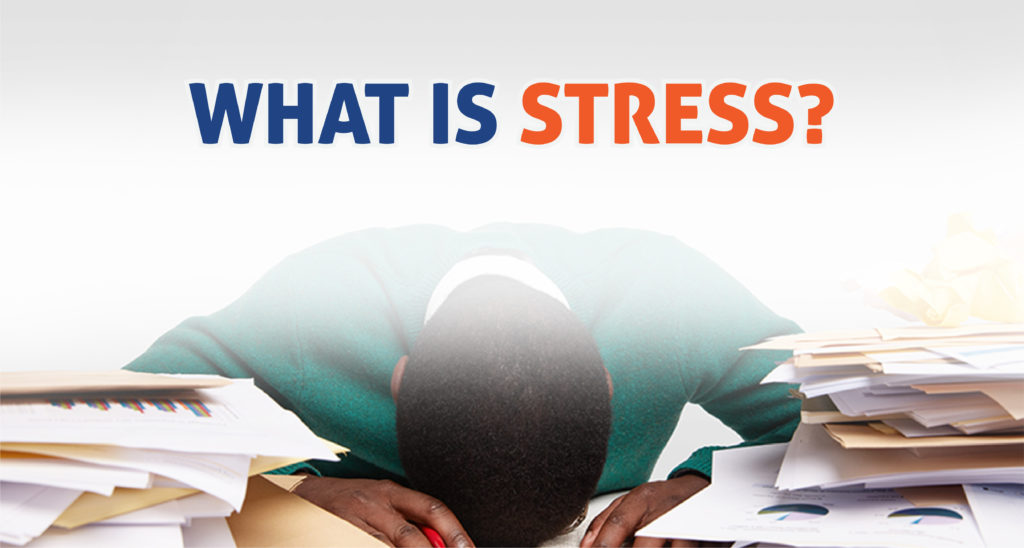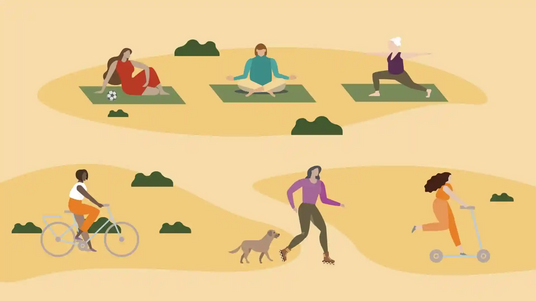Introduction
Stress is an unavoidable part of life. Whether it stems from work, relationships, finances, or health issues, stress can take a significant toll on both the mind and body. While a certain level of stress can be motivating, chronic stress contributes to a range of physical and mental health problems, including anxiety, depression, heart disease, and weakened immunity.
The good news is that stress can be managed effectively. This article explores evidence-based techniques to help reduce stress levels, improve resilience, and enhance overall well-being. With consistent practice, these methods can foster a calmer, healthier life.
Understanding Stress
What Is Stress?

Stress is the body’s natural response to a perceived threat or challenge. It triggers the release of hormones like adrenaline and cortisol, preparing the body to face a “fight or flight” situation. While this response is helpful in emergencies, prolonged activation can be harmful.
Types of Stress
- Acute Stress: Short-term stress resulting from immediate challenges, such as public speaking or a traffic jam.
- Chronic Stress: Ongoing stress from long-term situations, like job dissatisfaction or financial difficulties.
- Episodic Acute Stress: Frequent episodes of acute stress, often experienced by individuals with chaotic lifestyles.
Effects of Chronic Stress on Health
Chronic stress can manifest in various ways, including:
- Headaches and fatigue
- Sleep disturbances
- Digestive problems
- High blood pressure
- Anxiety and depression
- Weakened immune function
- Weight gain or loss
Understanding these effects is essential to recognizing the importance of managing stress proactively.
Techniques for Managing Stress
1. Mindfulness and Meditation
Mindfulness involves paying attention to the present moment without judgment. Meditation practices enhance this awareness and have been shown to lower stress hormone levels.
How to Practice:
- Start with 5-10 minutes of focused breathing daily.
- Use guided meditation apps or attend mindfulness classes.
- Incorporate mindfulness into daily activities like eating or walking.
2. Deep Breathing Exercises
Deep breathing helps activate the parasympathetic nervous system, which counteracts the stress response.
Simple Technique:
- Inhale slowly through the nose for 4 seconds.
- Hold the breath for 4 seconds.
- Exhale slowly through the mouth for 4 seconds.
- Repeat for 5-10 cycles.
3. Physical Activity

Exercise is a natural stress reliever. It boosts endorphins, improves sleep, and reduces tension.
Tips:
- Aim for at least 30 minutes of moderate activity most days.
- Activities like walking, yoga, dancing, and swimming are excellent choices.
- Even short 5-minute bursts of movement can provide relief.
4. Time Management
Feeling overwhelmed often results from poor time management. Organizing your time can reduce stress significantly.
Strategies:
- Prioritize tasks using lists or planners.
- Break large tasks into smaller, manageable steps.
- Learn to say no and delegate when possible.
5. Social Support
Connecting with others provides emotional comfort and helps reduce feelings of isolation.
Ways to Build Support:
- Reach out to friends and family regularly.
- Join clubs or community groups.
- Consider talking to a therapist or counselor.
6. Healthy Lifestyle Choices
Nutrition:
- Eat balanced meals rich in fruits, vegetables, whole grains, and lean protein.
- Limit caffeine, sugar, and alcohol, which can exacerbate stress symptoms.
Sleep:
- Aim for 7-9 hours of quality sleep each night.
- Establish a calming bedtime routine.
- Keep electronics out of the bedroom.
7. Journaling
Writing down thoughts and feelings can help clarify emotions and reduce anxiety.
How to Start:
- Spend 5-10 minutes daily writing in a journal.
- Focus on what you’re grateful for or what stressed you and how you handled it.
8. Nature and Outdoor Activities
Spending time in nature has calming effects and can improve mental clarity.
Suggestions:
- Take a walk in the park.
- Garden or do outdoor yoga.
- Try “forest bathing” (immersing yourself in a natural environment).
9. Relaxation Techniques
Progressive Muscle Relaxation (PMR):
- Tense and relax each muscle group in the body, starting from the toes and working upward.
Visualization:
- Imagine a peaceful scene, such as a beach or forest.
- Engage all senses in the imagery to enhance relaxation.
10. Creative Outlets
Engaging in hobbies like painting, music, or crafting can provide emotional release and reduce stress.
Creating a Personal Stress Management Plan

Step 1: Identify Stressors
Make a list of common triggers in your life. Awareness is the first step to control.
Step 2: Choose Techniques That Fit
Select 2-3 methods that resonate with you. It’s better to start small and build consistency.
Step 3: Set Realistic Goals
Make your goals specific and attainable, such as meditating for 5 minutes daily.
Step 4: Monitor Progress
Keep a stress journal to track what works and what needs adjustment.
Step 5: Adjust as Needed
Be flexible. As life changes, your stressors and management techniques may need to change too.
When to Seek Professional Help
If stress begins to interfere significantly with daily life, relationships, or physical health, it may be time to consult a mental health professional. Therapy, coaching, or even medication (in some cases) can provide support beyond self-care techniques.
Also Read : The Power Of Prevention: How Small Changes Lead To Big Health Benefits
Conclusion
Stress may be a natural part of life, but it doesn’t have to control you. By understanding your stressors and applying practical, evidence-based techniques, you can reduce anxiety, enhance resilience, and live a more balanced, fulfilling life. Remember, managing stress is not about eliminating it completely, but learning how to respond in healthier, more productive ways.
Frequently Asked Questions (FAQs)
1. What is the fastest way to relieve stress?
Deep breathing, stretching, and short walks are quick ways to lower stress in the moment.
2. Can diet affect stress levels?
Yes. A healthy diet helps regulate mood and energy, while high sugar and caffeine can worsen stress.
3. How does exercise help with stress?
Exercise releases endorphins, improves sleep, and reduces tension, making it a powerful stress reliever.
4. What if I don’t have time to relax?
Start small. Even 5 minutes of mindfulness or a short walk can make a difference.
5. How does sleep impact stress?
Lack of sleep increases stress hormone production. Quality sleep restores mental clarity and emotional balance.








